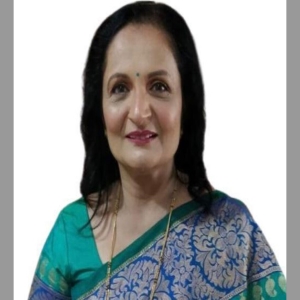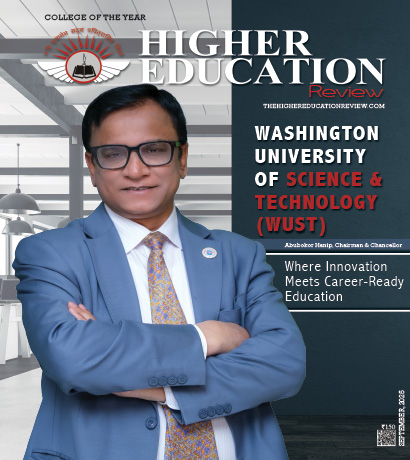A New Era in Medicine: Revolutionizing Medical Knowledge
 In a recent interaction with Higher Education Review, Mrunal Phatak, Dean, All India Institute of Medical Sciences, Nagpur shared her insights on various aspects pertaining to key principles and methodologies used in medical education. Mrunal holds an MBBS from Bombay University and an M.D. (physiology) from Nagpur University. She has more than 10 years of experience as a professor and head of physiology, and she is also the president of the Academy of Physiology. Below are the excerpts from the exclusive interview –
In a recent interaction with Higher Education Review, Mrunal Phatak, Dean, All India Institute of Medical Sciences, Nagpur shared her insights on various aspects pertaining to key principles and methodologies used in medical education. Mrunal holds an MBBS from Bombay University and an M.D. (physiology) from Nagpur University. She has more than 10 years of experience as a professor and head of physiology, and she is also the president of the Academy of Physiology. Below are the excerpts from the exclusive interview –
How has medical education evolved over the years and what are the current trends in medical education?
With the integration of technology and simulation-based learning, a focus on competency-based education, a shift towards interprofessional and team-based training, and an emphasis on personalized and self-directed learning, today's medical education in India has undergone notable changes. The new-age medical education is heavily influenced by the advancements in the medical science, which is now going by leaps and bounds with boom of discoveries, unlike earlier days when discoveries used to be very few and rare in this field. Now all the medical colleges across India following a competency-based education guideline implemented by the National Medical Commission or the Earth 12 Medical Council of India to equip medical graduates with technological innovations, innovative educational approaches and competitive curricula so that the medical graduates at the end can hone and retain the necessary skills to provide quality healthcare.
Another prominent change integrated in clinical sciences nowadays is early clinical exposure, where in the first year itself the medical students are bagging opportunities to serve patients by the bedside. This not only helps them learn the basic sciences but also helps them integrate basic and clinical sciences which further aids patient care. e-learning platforms are recently gaining ground and revolutionizing learning habits across the globe and medical education is leading this revolution from the front-end. While embracing technology for virtual simulations, remote learning, and telemedicine training, now medical students are able to engage in interactive learning and envisaging the practical skills. These newer trends in medical education are not only producing a more holistic approach to healthcare but also helps India in having specialist doctors even at the rural level.
What are some key principles and methodologies used in medical education?
Here are some common principles and methodologies that contributes to effective medical education and help prepare future healthcare professionals for their roles.
Active Learning: Encouraging students to participate actively in their learning process through discussions, case studies, problem-solving, and hands-on experiences.
Problem-Based Learning (PBL): Focusing on real-life scenarios and cases to promote critical thinking, collaboration, and application of knowledge in problem-solving.
Team-Based Learning (TBL): Structured group learning activities that encourage teamwork, peer teaching, and discussion to enhance understanding of complex concepts.
Simulation-Based Learning: Using realistic patient scenarios and medical simulations to provide experiential learning and practice in a safe environment.
Flipped Classroom: Reversing the traditional lecture-based approach by having students review materials before class and using class time for discussions, problem-solving, and active engagement.
Reflection & Feedback: Encouraging students to reflect on their learning experiences and providing constructive feedback to enhance their skills and knowledge.
Lifelong Learning: Instilling the value of continuous learning and professional development throughout a healthcare professional's career so the doctors have to keep themselves updated be a lifelong learner.
How do you see the future of lifestyle medicine evolving within the medical profession?
With a new-age philosophy, “better care, than cure” today mankind is running towards building wellness rather than just treating diseases. Hence, Lifestyle medicine (an entirely new and a fantastic branch) is poised for a significant growth and evaluation in the medical profile. Lifestyle medicine focuses on using healthy behaviours like proper nutrition, physical activity, stress management, and sleep to prevent and treat various health conditions. It emphasizes a holistic approach to well-being by offering numerous benefits, including improved overall health, reduced risk of chronic diseases (like heart disease, diabetes, and obesity), enhanced mental well-being, increased energy levels, better weight management, and a higher quality of life. Here the biggest advantage is it can reduce the health economies or the health expenses of our country, the adverse drug reactions produced by the medicines and most importantly we can reduce the amount of selling drugs which are being purchased by mostly the poor or middle-class category, so if incorporated properly it might have a greater or a larger implication on the family economy as well as the health economy of the country.
What are the major roadblocks in implementing lifestyle medicine approaches in medical practice and how can they be overcome?
It is no secret that lifestyle impacts health. It is a simple concept but becomes very complicated while leading a life full of highs and lows. The major challenges that stand tall against the implementation of lifestyle medicine include lack of patient awareness, difficulty in sustaining behavior changes, societal norms and cultural factors, limited healthcare provider training, and financial incentives favoring acute care over preventive measures. Overcoming these huge roadblocks requires strategies such as raising awareness, providing education, fostering supportive environments, and collaborating with healthcare professionals. It's crucial to bridge the gaps like lack of knowledge, limited resources, and resistance to change. Also, engaging stakeholders and using evidence-based practices can help drive successful implementation.
The evolving landscape of healthcare entails innovative teaching methods and a strong emphasis on practical skills. As medical education continues to adapt, it is imperative to prioritize holistic learning experiences that foster clinical expertise, ethical values, and patient-centered care. By investing in comprehensive and dynamic medical education, a brighter and healthier future for both healthcare providers and patients can be ensured.

